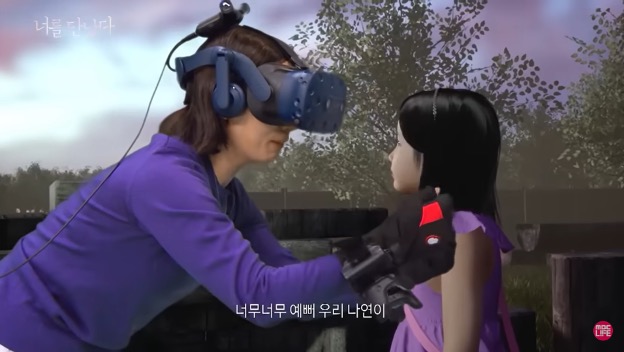Forever Online: ‘Generative Ghosts’ Live in the AI Afterlife

In the not-too-distant future, saying goodbye to a loved one may no longer mean a final farewell.
Several companies are offering services today to create artificial intelligence (AI) digital twins of deceased loved ones. Think of Superman conversing with the 3D twin of his Kryptonian father Jor-El in the Fortress of Solitude, who continued to give sage advice to his son well after he perished.
Organizations offering AI afterlife services include Re;memory from DeepBrain AI, HereAfter, Character.ai, StoryFile, Project December and even MIT’s Augmented Eternity.
But in a research paper by Google DeepMind and University of Colorado researchers, they put forward a more advanced version: “Generative ghosts.”
Generative ghosts go further than being AI digital twins that think, sound and look like the dead; they can also generate new conversations based on new life events or current news, according to the researchers.
Ghosts in the Machine
Moreover, they will have AI agent capabilities so they can act as you.
For example, they could continue to work after death — potentially removing the need for life insurance since they will keep on supporting dependents in the afterlife.
This is coming, the researchers predicted.
“We anticipate that within our lifetimes it may become common practice for people to create custom AI agents to interact with loved ones and/or the broader world after death,” the researchers wrote.
These generative ghosts are capable of learning, evolving and acting independently in ways that could fundamentally reshape how we grieve, remember and interact with the dead.
People can even create their own generative ghosts as part of their end-of-life planning process, the researchers said.
But consumers are mixed about whether there should be AI afterlives.
According to a 2024 survey by cybersecurity firm Kaspersky, 38% said it was not acceptable to create a digital identity of the deceased, while 35% said the opposite.
However, most were certain that these digital twins would reopen grief: 67% said seeing images or stories about people who have died would be upsetting to those close to them.
Read more: How the World Does Digital: A Global Benchmark of Consumer Digital Transformation
It’s Not Sci-Fi; It’s Estate Planning
The idea is not science fiction — nor is it far-fetched.
Companies offering a more basic form of digital immortality are already around, and their services are becoming more popular, especially in Asia where communicating with dead ancestors is part of the culture.
For example, in South Korea, a video of an emotional mother conversing with a virtual reality recreation of her deceased young daughter drew 36 million views as of this writing.

Startups like HereAfter and Re;memory already let clients record life stories that can later be animated through AI to converse with family after death.
In 2021, Microsoft was granted a patent for a system that would create a chatbot modeled after a person, using their images, social media posts, messages, voice and written content. The chatbot would be trained on this data. But Microsoft’s former general manager of AI programs Tim O’Brien, said in a post on X there were no plans to develop it.
These generative ghosts don’t have to be human; they could be pets too.
Looking ahead, researchers said generative ghosts could inhabit robots so grieving family and friends can physically touch and hold the deceased.
Beyond the social and psychological impact, these AI doppelgangers open the door to legal implications, especially for estate planning.
Generative ghosts could potentially serve as a new interface for executing living wills, managing digital assets or clarifying posthumous wishes.
In the future, a generative ghost might be used to weigh in on a contested will and other property and inheritance matters, especially when written documents leave room for doubt.
But this begs the question: Will the generative ghost have the same rights as its human? Are they considered the same being, albeit one is in digital form? Or is the generative ghost a mere representation, with more limited rights?
As a result, we may soon see AI clauses become standard in estate planning documents, much like health care proxies or advance directives are today.
See also: Digital Has Become a Way of Daily Life for 622M Consumers in 11 Global Markets
The Pros and Cons of Generative Ghosts
People might want to create a generative ghost of themselves as a form of digital legacy — a way to share experiences with future generations, guiding descendants through life events, or simply being remembered in an interactive way. Families may seek it for their loved ones — for comfort, closure or help with practical matters like estate administration.
“Our goal is to get rid of the pain of grief,” said Justin Harrison, founder of You, Only Virtual, a company that creates virtual versions of the deceased, in a documentary for German public broadcaster DW that aired this month.
The researchers said generative ghosts hold value for society. They may preserve endangered languages, document lived experiences of historical events or allow students to ‘interact’ with historical figures for education.
But there are major pitfalls too, the researchers warned.
They could affect the mental health of those left behind through delayed grief, or even confusing a simulation with reality.
Security risks include identity theft, ransomware attacks on digital ghosts and even malicious use by the ghost’s creator — just like cybercriminals use malware to infect software.
There are also risks to one’s reputation. What if the ghost hallucinates false memories or reveals secrets the deceased never intended to share? And who controls such representations?
As these AI ghosts become more capable, society must grapple with economic, ethical and spiritual implications.
“Widespread economic activity by generative ghosts might impact wages and employment opportunities for the living,” the paper said.
Also, should religious institutions embrace or reject these digital afterlives? Might new spiritual movements arise to worship them?
“The emergence of ‘AI afterlives’ may reshape society in complex ways beyond our current imagining,” the researchers wrote.



